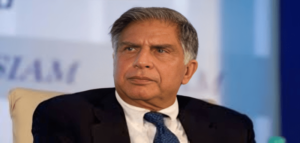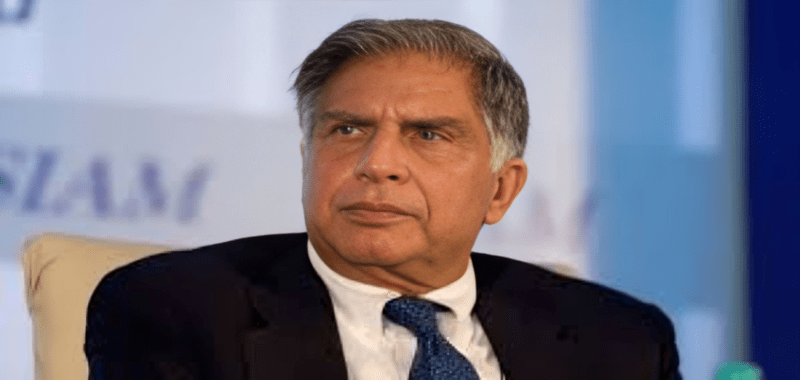
Mumbai: Ratan Tata, one of India’s most revered business tycoons, has passed away at the age of 86 at Breach Candy Hospital in Mumbai.
His demise marks the end of an era for the Tata Group and Indian industry as a whole. The Tata Sons Chairman, N Chandrasekaran, confirmed the unfortunate news.
As the world mourns his loss, it’s important to reflect on the extraordinary life of this legendary industrialist.
Early Life and Background
Ratan Tata was born on December 28, 1937, in Mumbai. He was the son of Naval Tata and Soonoo Tata and grew up under the guardianship of his grandmother after his parents separated.
Being part of a prominent family, Ratan Tata’s upbringing emphasized simplicity, values, and hard work.
After completing his early education in India, he moved to the United States to study architecture at Cornell University.
Later, pursued an Advanced Management Program at Harvard Business School, which equipped him with a global business perspective.
Leadership at Tata Group
In 1991, Ratan Tata took over as the Chairman of Tata Sons, marking the beginning of a new era for the Tata Group.
His leadership transformed the group’s operations and global standing.
Under his tenure, the Tata Group acquired international brands like Jaguar Land Rover and Corus Steel, putting Indian business prowess on the global stage.
His visionary approach also led to the inception of Tata Nano, an affordable car aimed at making vehicle ownership accessible for India’s middle class.
However, his journey wasn’t devoid of challenges. Many doubted his aggressive acquisitions and diversification strategies.
Yet, Ratan Tata’s belief in innovation, combined with his persistence, proved his critics wrong.
Philosophy and Philanthropy
Ratan Tata was not just a business leader but a philanthropist at heart. Throughout his career, he believed in ethical business practices and maintaining a strong social commitment.
He chaired Tata Trusts, which are known for their contributions to healthcare, education, and rural development.
His philanthropic efforts extended beyond business, making significant contributions during natural disasters, healthcare crises, and supporting educational initiatives.
His vision for society was built on values of integrity, empathy, and ethics.
He believed that businesses should contribute to societal development and actively worked to bridge gaps in healthcare, education, and technology access.
Ratan Tata: Character and Personal Life
Ratan Tata was known for his down-to-earth personality and simplicity. He often shunned the limelight and avoided the opulent lifestyle associated with his stature.
Despite leading a massive conglomerate, he lived in a modest apartment and had a very private life. He was an ardent animal lover and had a deep affinity for dogs, often seen spending time with them.
His fondness for animals was so strong that the Tata headquarters in Mumbai became pet-friendly under his leadership.
Global Recognition and Impact
Ratan Tata’s work garnered immense respect and recognition globally. Padma Bhushan in 2000 and the Padma Vibhushan in 2008—two of India’s highest civilian honors.
Internationally, his name became synonymous with ethical leadership and innovation. He inspired countless entrepreneurs not just in India but across the world to pursue business goals with integrity.
Ratan Tata Legacy and Influence
Although retired from role as Chairman of Tata Sons in 2012, continued to be a guiding force for the group.
He mentored young entrepreneurs and supported innovative startups, often sharing his experiences and wisdom. His legacy is more than just the financial success of the Tata Group.
It’s about the standards he set for ethical conduct, his focus on employee welfare, and his relentless pursuit of excellence.
Ratan Tata’s passing is a profound loss not just for the business world but for everyone who admired him for his humility, wisdom, and ethical values.
He leaves behind a rich legacy of transformative business decisions, philanthropic contributions, and an example of how businesses can grow while still remaining socially responsible.
His life’s story will continue to inspire future generations to lead with integrity, compassion, and a commitment to the greater good.













